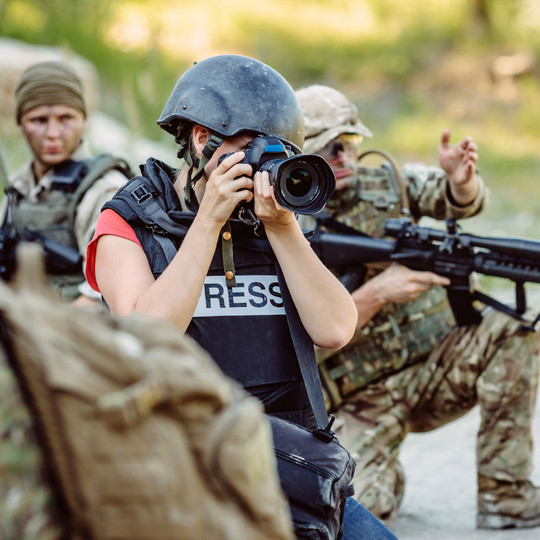What are the main questions a journalist should consider before buying insurance?
First, you should always inquire about the healthcare support for foreign visitors in the country they are visiting. Second, figure out what you will do if you have an accident and need help. Who will you call to help you? Third, think about the most dramatic situation: you get seriously injured while covering a story. How would you get home? Or worst still, you are a victim of crime. Finally, your equipment matters. What would be the best option if they get lost or damaged?
Are all reporting trips worth taking insurance?
An incident can happen at any time, in any environment. Incidents often occur when we are least prepared for it - especially financially. Emergency medical coverage should never be overlooked. The cost pales in comparison to an out-of-pocket medical evacuation, which can run into tens of thousands.
Give us three reasons why battleface is best fitted for journalists?
First, it is designed for journalists.
The IFJ collaborated with battleface from the very start to create an affordable, cost-efficient insurance solution designed for journalists, especially freelancers, who take such immense risks to report the story. We’ve built insurance specifically with the benefits that journalists need, with the flexibility for an individual to customise their plan for medical expenses, personal accident, and work equipment.
Second, it provides coverage in conflict zones.
battleface specialises in providing support in challenging and dangerous places, including active conflict zones and locations experiencing political and civil unrest, such as currently in the United States and other countries.
Third, we provide experienced, on-the-ground assistance.
We’ve worked with travelers in multiple locations since 2012. By providing an experienced network and access 24/7 to teams on the ground, journalists can rely on us when situations become very difficult.
What is the advice you would provide to a journalist who often reports overseas, safety-wise?
Plan! Do a risk assessment and make sure that they have travel medical protection! As travel plans follow the story, it’s essential to be able to extend a policy while on location to ensure that the journalist can always be covered.
In addition to insurance, diligent research of the location(s), undertake Hostile Environment Training also known as HET and acquiring the right personal protection equipment are all critical.
Give us an example of how battleface has helped a journalist reporting overseas.
We recently assisted a journalist on a foreign assignment who experienced significant damage to their work equipment. The loss came from a third party. Nonetheless, we provided a cash settlement for the damaged items to enable the journalist to replace his equipment as soon as possible.

